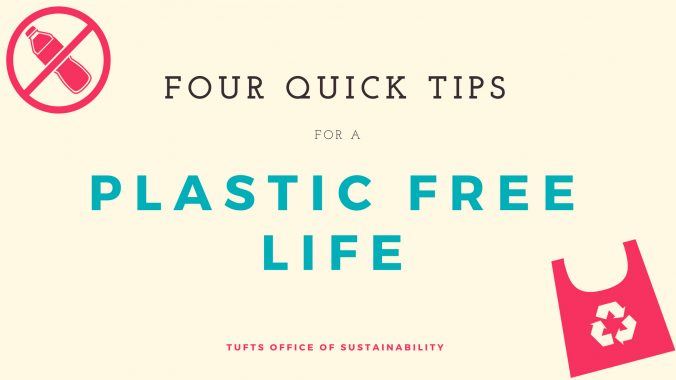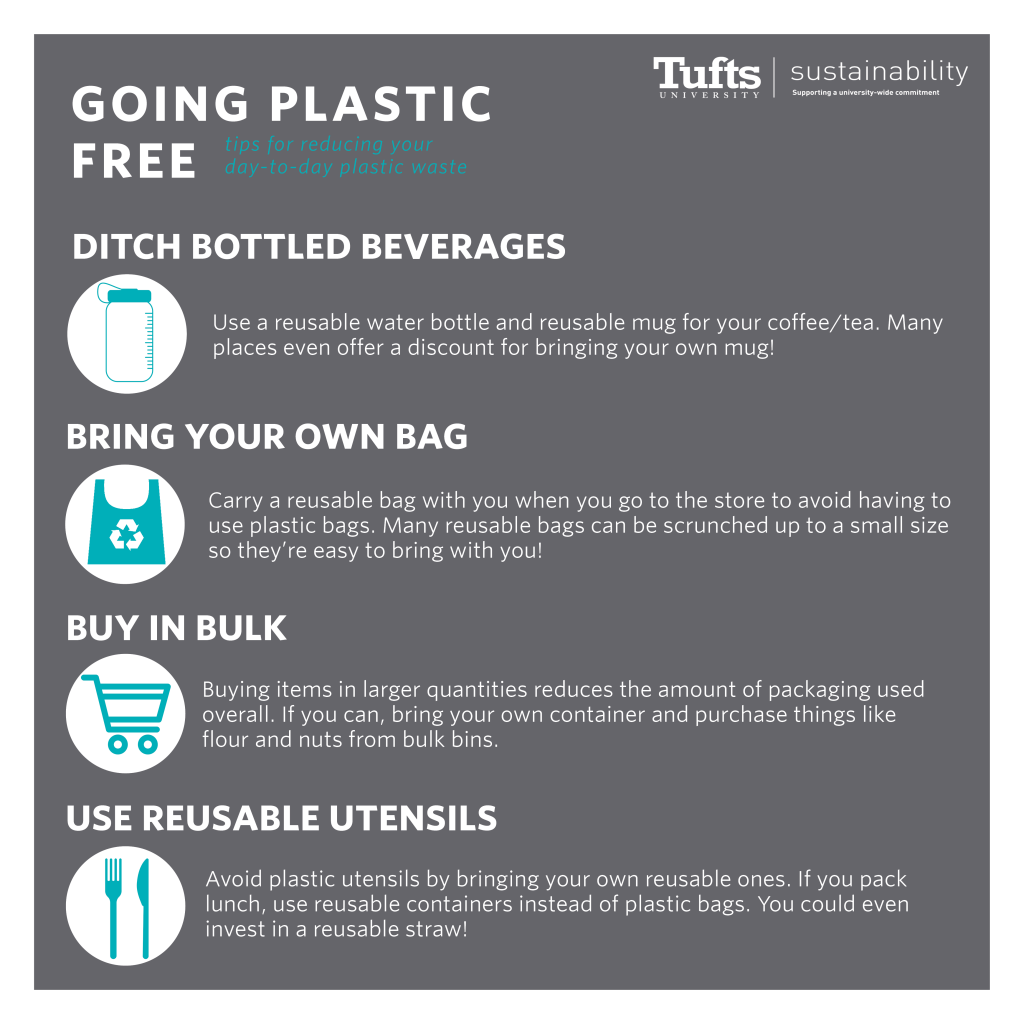According to a National Geographic article, 8.3 billion metric tons of plastic has been created since manufacturing of the material began six decades ago. The article also estimates that 91% of all plastic consumed around the world is not recycled.
As you may have seen on social media, many people have attempted to avoid using plastic products completely for the month of July, as a part of Plastic-Free July. Although July is coming to an end, that does not mean that we should abandon the effort to reduce our plastic consumption.
Here are just a few small changes you can make to reduce your consumption of plastic on a daily basis:
Ditch Bottled Beverages and Disposable Cups:
According to a 2017 article, “a million plastic bottles are bought around the world every minute.” That comes down to around 20,000 plastic bottles every second! Not only is using a reusable mug or water bottle a great way to reduce plastic consumption, it may also save you some money. Many coffee shops and other stores offer discounts to those who bring their own bottles and mugs.
Bring Your Own Bag
As with reusable mugs and bottles, bringing your own reusable bag to grocery stores often gets you a discount. To take a step further, you can also purchase reusable mesh bags for produce instead of using the plastic bags available in the produce section of grocery stores.
Buy In Bulk
Buying in bulk is not always feasible if you do not have many mouths to feed in your home. As an alternative, many grocery stores have bulk sections where you can purchase items like grains, nuts, spices and dried fruits from bulk bins in the exact quantities that you need. Bringing your own container and measuring out the exact amount of an item you need is a great way to eliminate both packaging waste and food waste – because are you really going to use up that large container of cardamom you bought to make curry that one time?
Use Reusable Utensils
Whenever possible, try bringing your own utensils and plates to events and meetings where food may be served. For packed lunches, you could invest in a reusable sandwich or snack bag to replace single-use plastic bags. You could even try out beeswax wrap, an alternative to plastic wrap!



Find Us On Social Media!